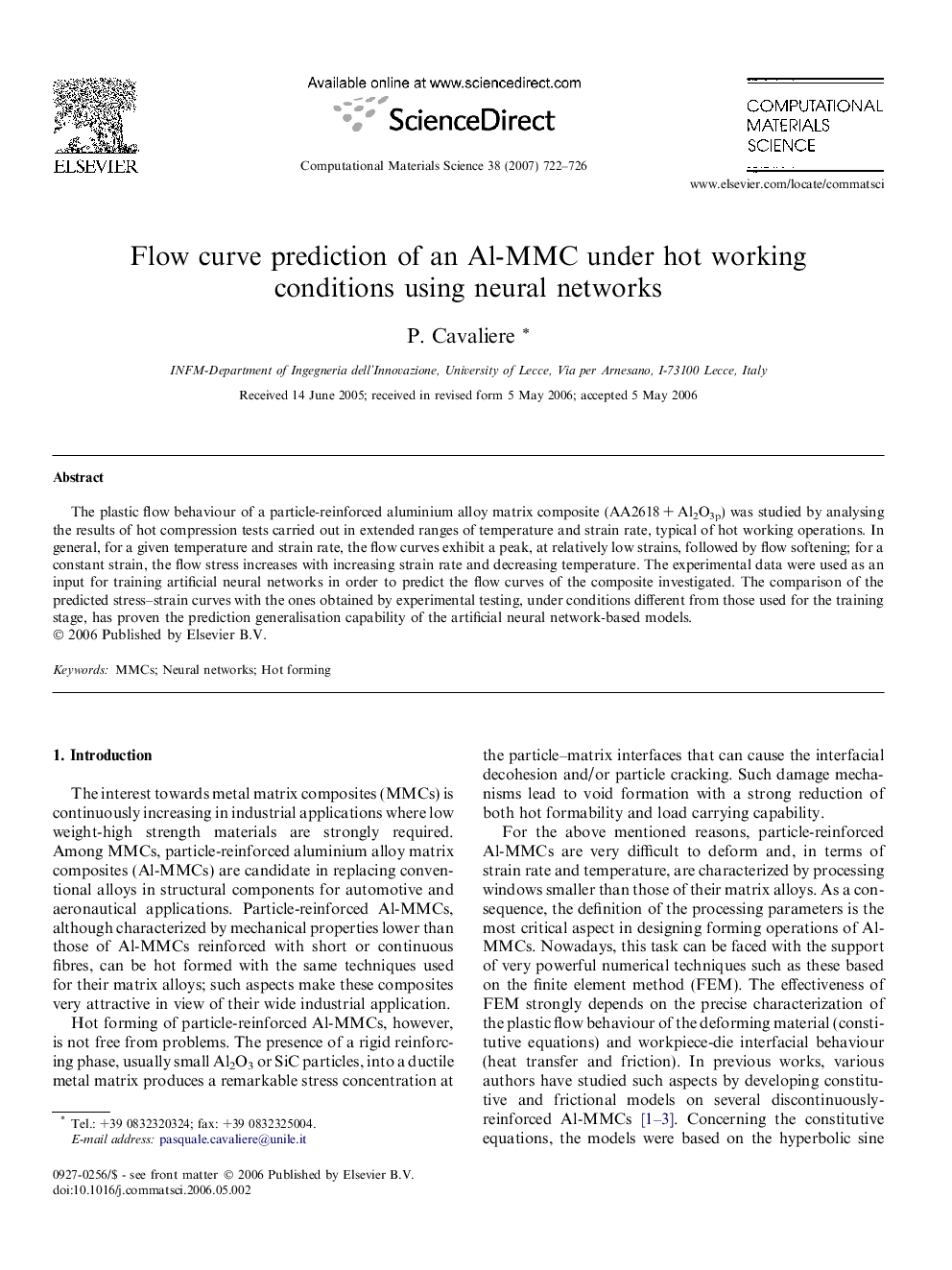| Article ID | Journal | Published Year | Pages | File Type |
|---|---|---|---|---|
| 1563800 | Computational Materials Science | 2007 | 5 Pages |
The plastic flow behaviour of a particle-reinforced aluminium alloy matrix composite (AA2618 + Al2O3p) was studied by analysing the results of hot compression tests carried out in extended ranges of temperature and strain rate, typical of hot working operations. In general, for a given temperature and strain rate, the flow curves exhibit a peak, at relatively low strains, followed by flow softening; for a constant strain, the flow stress increases with increasing strain rate and decreasing temperature. The experimental data were used as an input for training artificial neural networks in order to predict the flow curves of the composite investigated. The comparison of the predicted stress–strain curves with the ones obtained by experimental testing, under conditions different from those used for the training stage, has proven the prediction generalisation capability of the artificial neural network-based models.
